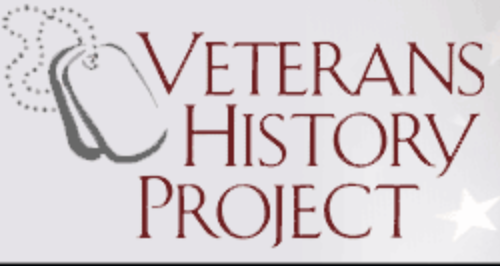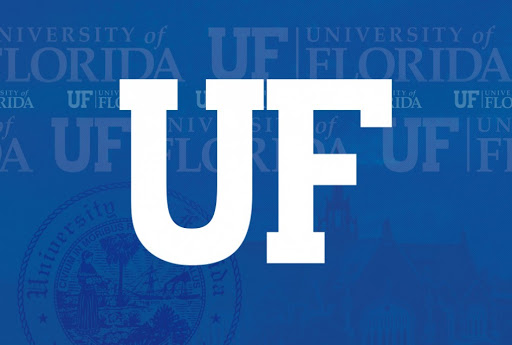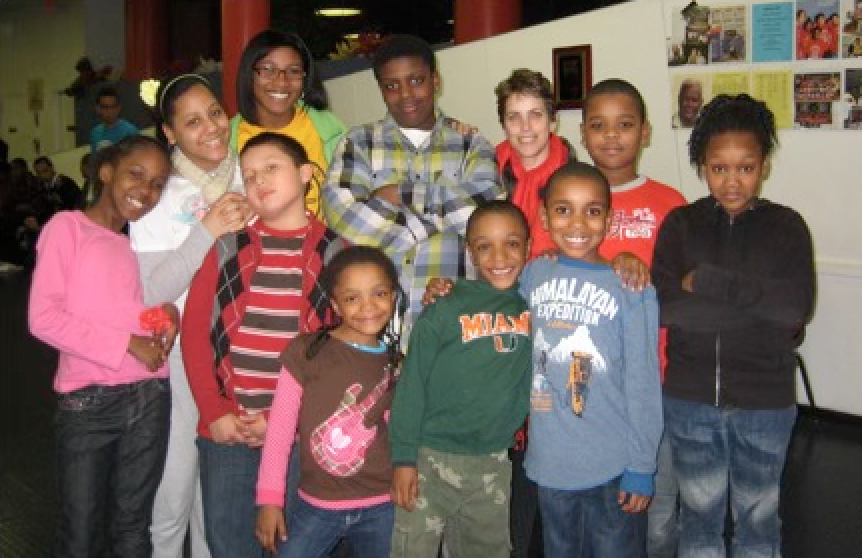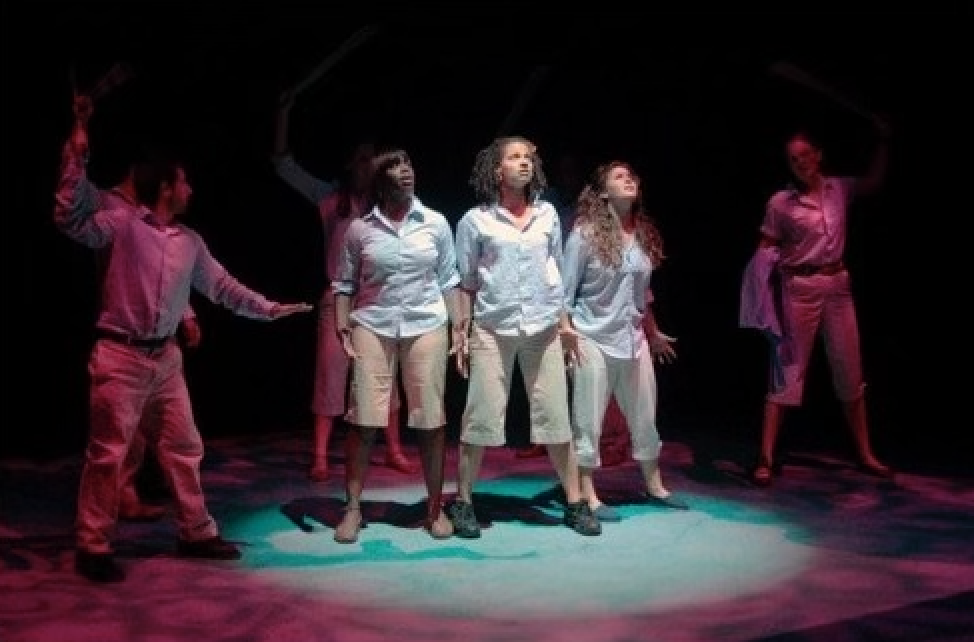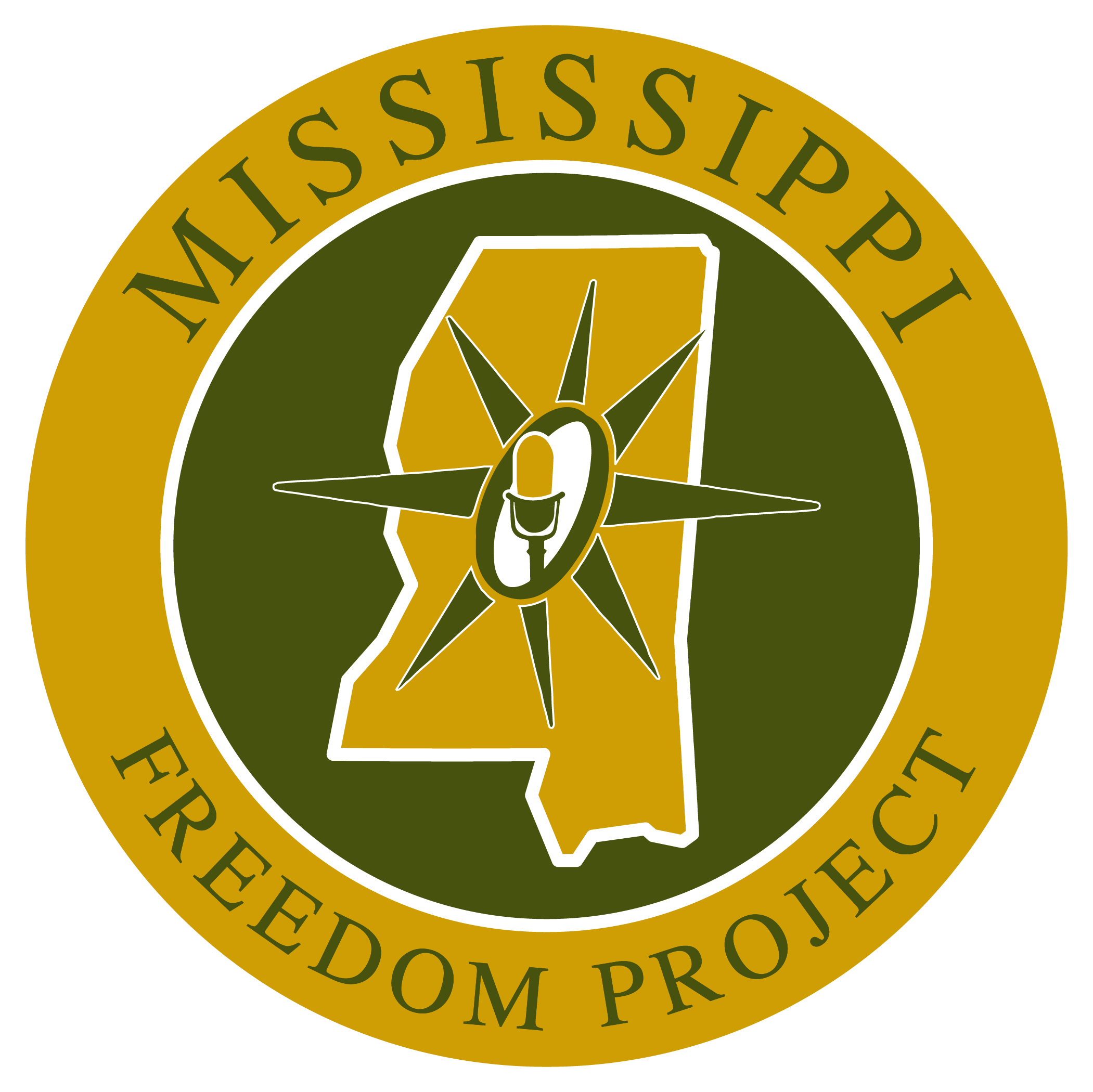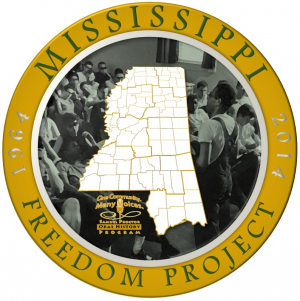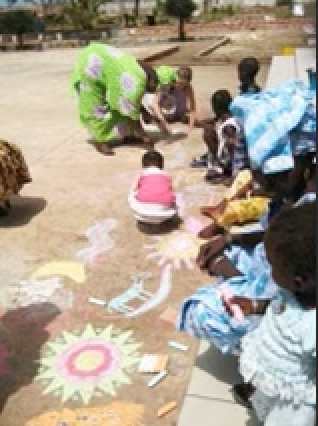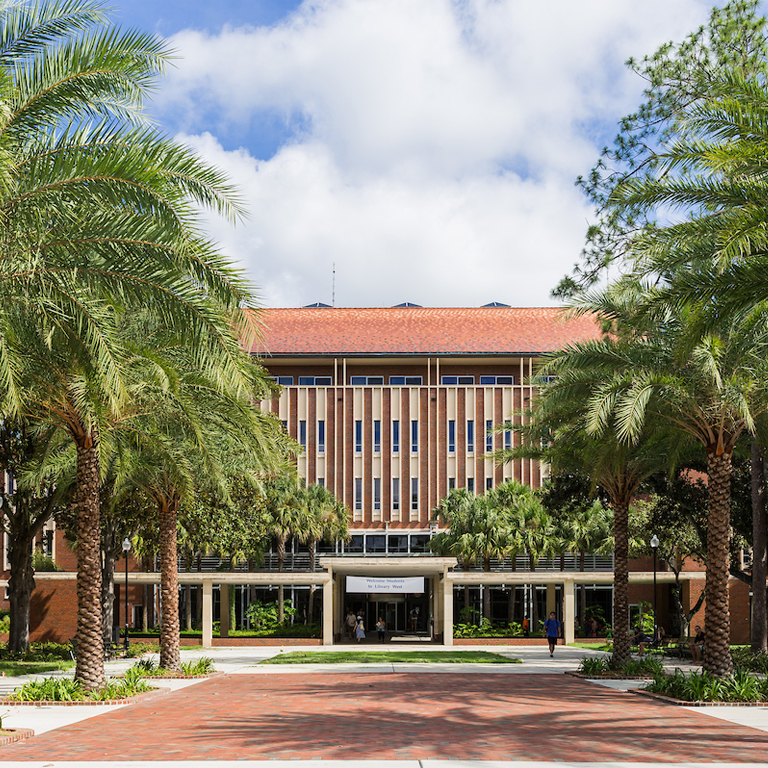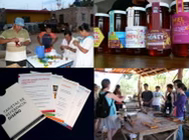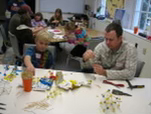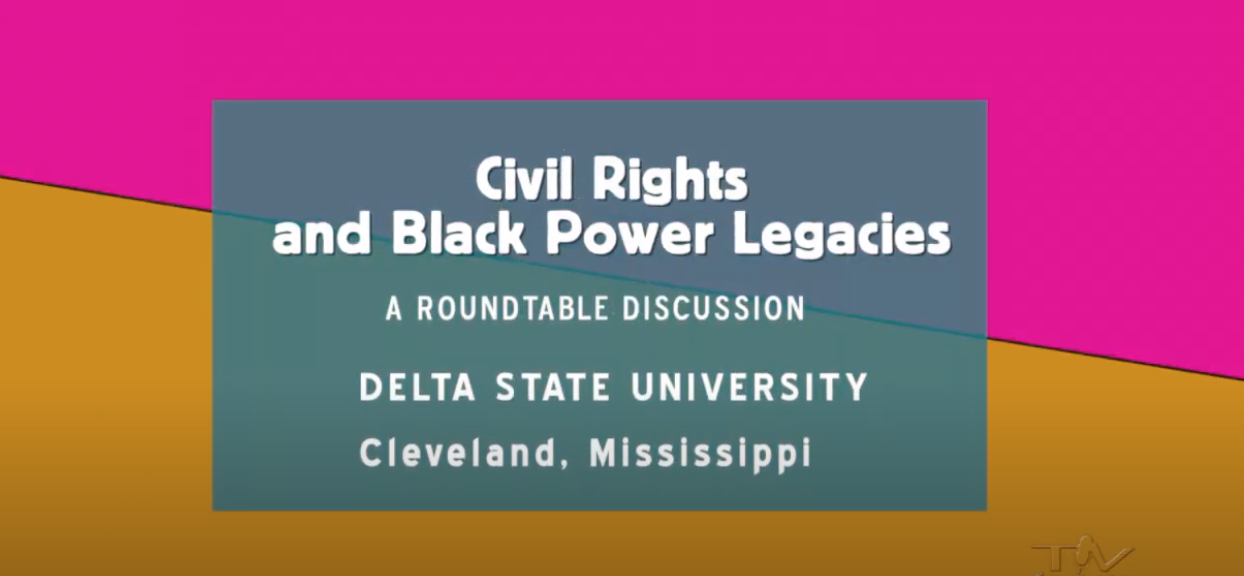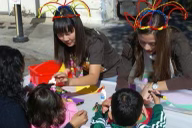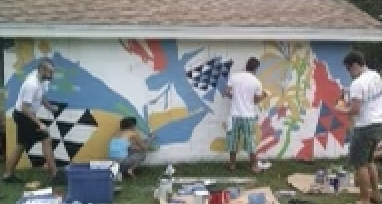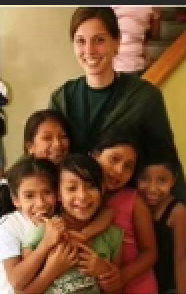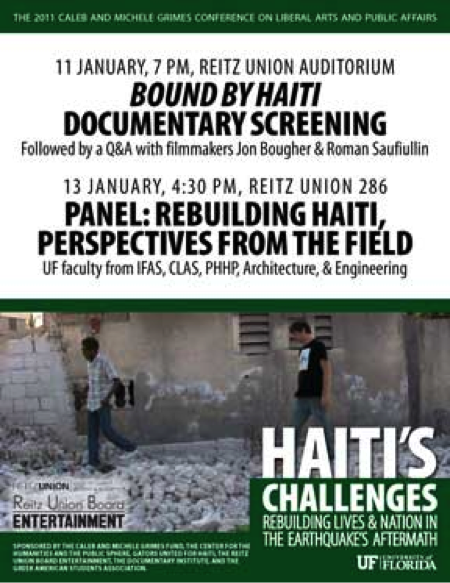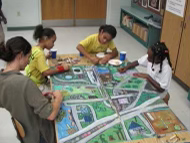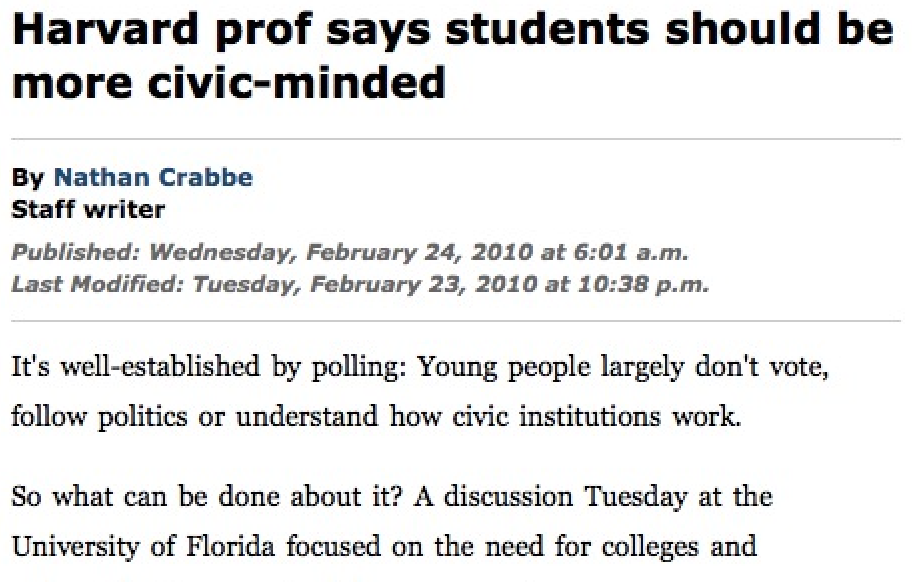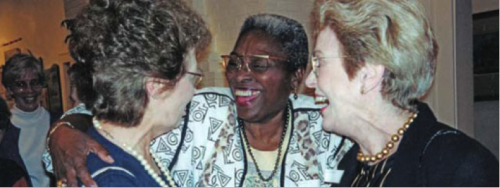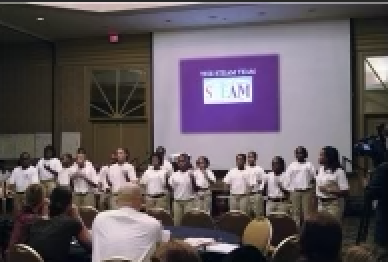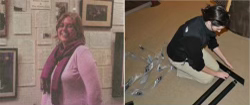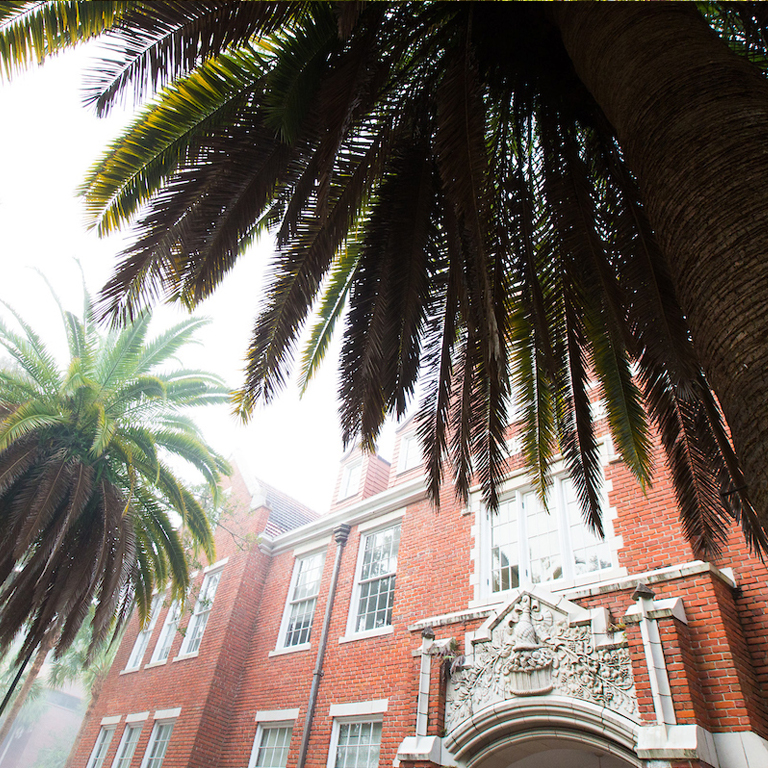2000
The Veteran’s History Project is one of the program’s longest-running collections, organized after the Library of Congress approached SPOHP in 2000 to collect oral histories with World War II veterans for the nationwide Veteran’s History Project.
Research topics include a range of military conflicts, including oral histories veterans from World War II, the Korean War, the Vietnam War, military operations in Central America, the Gulf War, Iraq and Afghanistan conflicts, and more.
The broad scope of the Veteran’s History Project collection is owed to the determined work of its volunteers, led by Coordinator Ann Smith and the entire team of dedicated community members who generously donate their time and energy.
We currently have 325 WWII interviews, with more every week. We will be collecting some at The Atrium and have formed a meaningful partnership at Altrusa House. Altrusa House provides day care and has begun interviewing veterans. Nancy Hult and Ray Jones are willing to follow guidelines for SPOHP and for the Library Congress participation. We welcome their participation.
2000
The Veteran’s History Project is one of the program’s longest-running collections, organized after the Library of Congress approached SPOHP in 2000 to collect oral histories with World War II veterans for the nationwide Veteran’s History Project.
Research topics include a range of military conflicts, including oral histories veterans from World War II, the Korean War, the Vietnam War, military operations in Central America, the Gulf War, Iraq and Afghanistan conflicts, and more.
The broad scope of the Veteran’s History Project collection is owed to the determined work of its volunteers, led by Coordinator Ann Smith and the entire team of dedicated community members who generously donate their time and energy.
We currently have 325 WWII interviews, with more every week. We will be collecting some at The Atrium and have formed a meaningful partnership at Altrusa House. Altrusa House provides day care and has begun interviewing veterans. Nancy Hult and Ray Jones are willing to follow guidelines for SPOHP and for the Library Congress participation. We welcome their participation.
2000
At the end of each semester, students of IUF 1000 complete the This I Believe (TIB) audio essay (adapted from ThisIBelieve.org). In this assignment, students identify a value or belief that guides them, and they explain how a course work relates to that value or belief. Beginning Summer 2016, students of IUF 1000 have been invited to enter their audio essays in the competition for the TIB Scholarship, sponsored by the Office of Undergraduate Affairs. The Finalists of the competition and the recipients of the TIB Scholarship have their entries included in the course’s new digital collection, IUF 1000: What is the Good Life @ UF. This collection is intended to serve as a resource for current students to consult, to recognize students in IUF 1000 for the exceptional quality of their work, and to provide the UF community with the opportunity to learn more about the purpose and content of the course. Audio essays will continue to be added each semester the competition is conducted.
For more information, contact Andrew Wolpert, Director of IUF 1000, at wolpert@ufl.edu
2000
At the end of each semester, students of IUF 1000 complete the This I Believe (TIB) audio essay (adapted from ThisIBelieve.org). In this assignment, students identify a value or belief that guides them, and they explain how a course work relates to that value or belief. Beginning Summer 2016, students of IUF 1000 have been invited to enter their audio essays in the competition for the TIB Scholarship, sponsored by the Office of Undergraduate Affairs. The Finalists of the competition and the recipients of the TIB Scholarship have their entries included in the course’s new digital collection, IUF 1000: What is the Good Life @ UF. This collection is intended to serve as a resource for current students to consult, to recognize students in IUF 1000 for the exceptional quality of their work, and to provide the UF community with the opportunity to learn more about the purpose and content of the course. Audio essays will continue to be added each semester the competition is conducted.
For more information, contact Andrew Wolpert, Director of IUF 1000, at wolpert@ufl.edu
2005
Organized by: Neta Pulvermacher, Assistant Professor- School of Theatre and Dance
Neta Pulvermacher is the director of Our Children Foundation Dance Project in Harlem. Currently her company, Neta Dance Co. has worked in residence for the project. Since 2005, the company has held free showings of works and Q& A discussion with the children and teens after the performances.
The Our Children Dance Exchange Project has held fourteen week dance-making workshops where two UF alumni, Matt Reeves and Colette Krogol work with the program which culminates with a program of thestudents choreography. This choreography workshop program is
funded by the Lower Manhattan Cultural Council, Manhattan
Community Arts Fund.
For more information: www.netacompany.org
2005
Organized by: Neta Pulvermacher, Assistant Professor- School of Theatre and Dance
Neta Pulvermacher is the director of Our Children Foundation Dance Project in Harlem. Currently her company, Neta Dance Co. has worked in residence for the project. Since 2005, the company has held free showings of works and Q& A discussion with the children and teens after the performances.
The Our Children Dance Exchange Project has held fourteen week dance-making workshops where two UF alumni, Matt Reeves and Colette Krogol work with the program which culminates with a program of thestudents choreography. This choreography workshop program is
funded by the Lower Manhattan Cultural Council, Manhattan
Community Arts Fund.
For more information: www.netacompany.org
2007
A performance directed by Prof. Mikell Pinkney, UF School of Theatre and Dance, is a good example of how faculty and students can work internationally and then return that experience to the local community.
“Where Can We Run? The Rwanda Experience” began with the UF Arts in Medicine/CAHRE program working in Africa to provide medical and emotional assistance to those impacted by genocide (1990s).
Once the students returned home to the US, they transformed their experience into storytelling, poetry, songs and video.
“Rwanda serves as a model for the devastation that can occur as a result of cultural divisiveness, for the capacity for healing in a wounded society, and for the roles that the arts can play in such healing,” says Jill Sonke, director of CAHRE. “Our goal is to bring the arts to genocide survivors and their families in Rwanda and to bring these important messages home to Florida communities.”
2007
A performance directed by Prof. Mikell Pinkney, UF School of Theatre and Dance, is a good example of how faculty and students can work internationally and then return that experience to the local community.
“Where Can We Run? The Rwanda Experience” began with the UF Arts in Medicine/CAHRE program working in Africa to provide medical and emotional assistance to those impacted by genocide (1990s).
Once the students returned home to the US, they transformed their experience into storytelling, poetry, songs and video.
“Rwanda serves as a model for the devastation that can occur as a result of cultural divisiveness, for the capacity for healing in a wounded society, and for the roles that the arts can play in such healing,” says Jill Sonke, director of CAHRE. “Our goal is to bring the arts to genocide survivors and their families in Rwanda and to bring these important messages home to Florida communities.”
2008
The Center for the Humanities and the Public Sphere has co-sponsored a project of the Samuel Proctor Oral History Program (SPOHP), which conducts ongoing research in the Mississippi Delta on the Civil Rights Movement in Mississippi by interviewing veteran civil rights activists and leading scholars of the movement.
The Mississippi Freedom Project (MFP) is an award-winning archive of 200+ oral history interviews conducted with veterans of the civil rights movement and notable residents of the Mississippi Delta.
The collection centers on activism and organizing in partnership with the Sunflower County Civil Rights Organization in Sunflower, Mississippi.
2008
The Center for the Humanities and the Public Sphere has co-sponsored a project of the Samuel Proctor Oral History Program (SPOHP), which conducts ongoing research in the Mississippi Delta on the Civil Rights Movement in Mississippi by interviewing veteran civil rights activists and leading scholars of the movement.
The Mississippi Freedom Project (MFP) is an award-winning archive of 200+ oral history interviews conducted with veterans of the civil rights movement and notable residents of the Mississippi Delta.
The collection centers on activism and organizing in partnership with the Sunflower County Civil Rights Organization in Sunflower, Mississippi.
2008
Since 2008, the Mississippi Freedom Project (MFP) has traveled to the Mississippi Delta annually on a field research trip with undergraduate students, graduate students, and staff to collect oral histories with civil rights veterans and notable residents.
The trip partners with the Sunflower County Civil Rights Organization and other research allies.
The annual Mississippi Freedom Project research trip serves to place undergraduate, graduate, and staff researchers in a dynamic environment to gather hands-on experience and knowledge of progressive social movements. As researchers in the Delta, trip participants work with community groups and education programs to collect oral histories with civil rights veterans and notable residents of the Delta, lending the collected oral histories a unique focus on connecting the lessons of civil rights movement organizing with Mississippi’s current social and political climate.
2008
Since 2008, the Mississippi Freedom Project (MFP) has traveled to the Mississippi Delta annually on a field research trip with undergraduate students, graduate students, and staff to collect oral histories with civil rights veterans and notable residents.
The trip partners with the Sunflower County Civil Rights Organization and other research allies.
The annual Mississippi Freedom Project research trip serves to place undergraduate, graduate, and staff researchers in a dynamic environment to gather hands-on experience and knowledge of progressive social movements. As researchers in the Delta, trip participants work with community groups and education programs to collect oral histories with civil rights veterans and notable residents of the Delta, lending the collected oral histories a unique focus on connecting the lessons of civil rights movement organizing with Mississippi’s current social and political climate.
2008
The Franklin County Project supported the preservation of the Apalachicola Bay seafood industry and estuaries by preserving the health, images and stories of its workers. The project brought awareness to the industry, including its unique artistry and individuals who form the culture, through simultaneous oral history, mural and health projects.
An interdisciplinary team of faculty, students and health professionals from the UF Center for the Arts in Healthcare spent a week in Franklin County documenting histories of the industry and its workers and creating a set of murals reflecting the industry, the bay, and the lives of people who sustain them. The team’s health professionals from the UF College of Nursing and Shands Hospital, will provide health screenings and health information to seafood workers and community members.
Students participated in the project through the UF International Fine Arts for Healing student organization.
For more information: http://www.arts.ufl.edu/cahre/ifah.as
2008
The Franklin County Project supported the preservation of the Apalachicola Bay seafood industry and estuaries by preserving the health, images and stories of its workers. The project brought awareness to the industry, including its unique artistry and individuals who form the culture, through simultaneous oral history, mural and health projects.
An interdisciplinary team of faculty, students and health professionals from the UF Center for the Arts in Healthcare spent a week in Franklin County documenting histories of the industry and its workers and creating a set of murals reflecting the industry, the bay, and the lives of people who sustain them. The team’s health professionals from the UF College of Nursing and Shands Hospital, will provide health screenings and health information to seafood workers and community members.
Students participated in the project through the UF International Fine Arts for Healing student organization.
For more information: http://www.arts.ufl.edu/cahre/ifah.as
2009
Beginning in 2009, the Center for the Humanities and the Public Sphere has used funds from the Rothman Endowment to sponsor a grant competition among University of Florida faculty and graduate students to expand the existing University of Florida library collections in areas in and related to the humanities that are currently underserved. Resources may include print, digital, or audio-visual media that enhance scholarly research and teaching in the humanities as well as affiliated disciplines. Requests that address the needs of broader constituencies of the University beyond the immediate applicants are judged especially favorably.
2009
Beginning in 2009, the Center for the Humanities and the Public Sphere has used funds from the Rothman Endowment to sponsor a grant competition among University of Florida faculty and graduate students to expand the existing University of Florida library collections in areas in and related to the humanities that are currently underserved. Resources may include print, digital, or audio-visual media that enhance scholarly research and teaching in the humanities as well as affiliated disciplines. Requests that address the needs of broader constituencies of the University beyond the immediate applicants are judged especially favorably.
2009
design for development (d4d) is an international initiative to explore how graphic designers, in partnership with marginalized communities, can use design processes, products, and strategies to develop sustainable solutions for local economic, social, cultural, and environmental problems. In doing this work, we move from our traditional places of work—our studios—to rural project sites in southern Mexico to work directly with project partners, including honey producers, organic farmers, community/ecotourism providers, and artisans as well as other disciplinary experts whose knowledge is necessary for project development. Our work provides unique challenges as well as opportunities to use graphic design—theories, methods, and resulting products—as a catalyst for change and development. In the long-term, it has the potential to positively impact participants’ economy, society, culture, and environment. While this work has taken place in Mexico, it has every potential to be replicated in the United States and I am currently developing a manuscript on the d4d methodology to share with other interested in innovative and responsible ways to integrate design into community development.
Organized by: Maria Rogal, Associate Professor- School of Art and Art History
For more information: www.design4development.org
2009
design for development (d4d) is an international initiative to explore how graphic designers, in partnership with marginalized communities, can use design processes, products, and strategies to develop sustainable solutions for local economic, social, cultural, and environmental problems. In doing this work, we move from our traditional places of work—our studios—to rural project sites in southern Mexico to work directly with project partners, including honey producers, organic farmers, community/ecotourism providers, and artisans as well as other disciplinary experts whose knowledge is necessary for project development. Our work provides unique challenges as well as opportunities to use graphic design—theories, methods, and resulting products—as a catalyst for change and development. In the long-term, it has the potential to positively impact participants’ economy, society, culture, and environment. While this work has taken place in Mexico, it has every potential to be replicated in the United States and I am currently developing a manuscript on the d4d methodology to share with other interested in innovative and responsible ways to integrate design into community development.
Organized by: Maria Rogal, Associate Professor- School of Art and Art History
For more information: www.design4development.org
2009
The UF National Art Education Association sponsors informational, community outreach, and promotional activities, provide an effective transition from art education preparation to professional practice, promote an exchange of ideas in substantive art education and all areas of the visual arts, and maintain a high standard of quality art education on campus and in the community.
For more information: http://plaza.ufl.edu/mtilland/index.html
2009
The UF National Art Education Association sponsors informational, community outreach, and promotional activities, provide an effective transition from art education preparation to professional practice, promote an exchange of ideas in substantive art education and all areas of the visual arts, and maintain a high standard of quality art education on campus and in the community.
For more information: http://plaza.ufl.edu/mtilland/index.html
2009
Jaymes Moore, a senior graphic design student at UF, stands with the visual display he constructed on campus for World AIDS Day, an international day held every Dec. 1 since 1988 to raise awareness about HIV and AIDS around the globe.
Gainesville Sun Article: http://www.gainesville.com/article/20091201/articles/912019867
2009
Jaymes Moore, a senior graphic design student at UF, stands with the visual display he constructed on campus for World AIDS Day, an international day held every Dec. 1 since 1988 to raise awareness about HIV and AIDS around the globe.
Gainesville Sun Article: http://www.gainesville.com/article/20091201/articles/912019867
2009
Katerie Gladdys, Assistant Professor- School of Art and Art History, transforms mapped landscapes and familiar interactions into alternative geographies. Slash and burn land clearing in Florida provides an optimal habitat for edible weeds. This piece is a micro-video documenting the tragedy, irony, and possible redemption of these landscapes.
Rampant land development—condominiums, churches, and subdivisions— marks/mars the Florida landscape and is part of the ongoing history of the state. Before the recession, developers cleared land at a breathtaking pace. Forest and ranch land one week, strip mall and suburban homes following. What was there will never be as it was. One land clearing practice is to slash, bulldoze, and burn destroying entire ecosystems. Next, a road replete with a cul-de-sac is etched into the landscape, followed by hydrants and signage purposing the land into sale-able lots.
With the advent of the recession, the cleared land is left to its own devices, providing a habitat for edible weeds and creating a slim “green lining” in light of greater destruction. The research for this piece was done with the assistance of Susan Marynowski of the Alachua County Native Plant Society. The piece consists of micro-videos that document the tragedy, irony, and possible redemption of these landscapes left fallow by the recession.
2009
Katerie Gladdys, Assistant Professor- School of Art and Art History, transforms mapped landscapes and familiar interactions into alternative geographies. Slash and burn land clearing in Florida provides an optimal habitat for edible weeds. This piece is a micro-video documenting the tragedy, irony, and possible redemption of these landscapes.
Rampant land development—condominiums, churches, and subdivisions— marks/mars the Florida landscape and is part of the ongoing history of the state. Before the recession, developers cleared land at a breathtaking pace. Forest and ranch land one week, strip mall and suburban homes following. What was there will never be as it was. One land clearing practice is to slash, bulldoze, and burn destroying entire ecosystems. Next, a road replete with a cul-de-sac is etched into the landscape, followed by hydrants and signage purposing the land into sale-able lots.
With the advent of the recession, the cleared land is left to its own devices, providing a habitat for edible weeds and creating a slim “green lining” in light of greater destruction. The research for this piece was done with the assistance of Susan Marynowski of the Alachua County Native Plant Society. The piece consists of micro-videos that document the tragedy, irony, and possible redemption of these landscapes left fallow by the recession.
2009
On the 2nd annual Mississippi Freedom research trip to the Delta region of Mississippi, also heartland of the Civil Rights Movement, student researchers of the University of Florida on this trip assisted in the production of this roundtable discussion on African American activism featuring leaders in the field.
THURSDAY EVENING: 7:00 pm. August 20, 2009. Civil Rights and Black Power legacies roundtable at Delta State University in Cleveland, Mississippi, featuring noted scholars Hasan Kwame Jeffries (Ohio State University); Curtis Austin, (University of Southern Mississippi); Emilye Crosby (SUNYGeneseo ), Margaret Block, and an essay written by Dr. Zoharah Simmons of the University of Florida and read by Khambria Clarke, undergraduate of the University of Florida. Introductions by Arlene Sanders and moderator Dr. Paul Ortiz of the University of Florida.
We will seminar with some of the top civil rights movement scholars and activists in the United States at the historically black college, Delta State University. This will be a powerful event and we wiII have a chance to talk with great scholars as well as contemporary students and activists in attendance.
2009
On the 2nd annual Mississippi Freedom research trip to the Delta region of Mississippi, also heartland of the Civil Rights Movement, student researchers of the University of Florida on this trip assisted in the production of this roundtable discussion on African American activism featuring leaders in the field.
THURSDAY EVENING: 7:00 pm. August 20, 2009. Civil Rights and Black Power legacies roundtable at Delta State University in Cleveland, Mississippi, featuring noted scholars Hasan Kwame Jeffries (Ohio State University); Curtis Austin, (University of Southern Mississippi); Emilye Crosby (SUNYGeneseo ), Margaret Block, and an essay written by Dr. Zoharah Simmons of the University of Florida and read by Khambria Clarke, undergraduate of the University of Florida. Introductions by Arlene Sanders and moderator Dr. Paul Ortiz of the University of Florida.
We will seminar with some of the top civil rights movement scholars and activists in the United States at the historically black college, Delta State University. This will be a powerful event and we wiII have a chance to talk with great scholars as well as contemporary students and activists in attendance.
2009
On Friday, Oct. 2, 2009, the Kids with Cameras Foundation celebrated Mahatma Gandhi’s 140th birthday with a worldwide screening of the Academy Award-winning documentary film Born into Brothels.
A Gainesville screening party was held at UF alumnus’ gallery, Randy Batista Photography Gallery in Gainesville.
The event featured videos by current School of Art and Art History (SA+AH) Drawing and Painting MFA candidate Radhika Agrawala, co-orgainzed by Garima Thakur (SA+AH Graphic Design MFA candidate), Sarah Fitzpatrick (UF alumnae) & Lauren Lake (faculty, SA+AH)
Volunteers from the SA+AH included: Andrew Hendrixson, Nick Pilato, David Tarafa, Scott Horsley, Jill Mullins, Radhika Agarwala and Garima Thakur
Speakers included: Anita Anantharam, Assistant Professor, UF Center for Women’s Studies and Gender Research
2009
On Friday, Oct. 2, 2009, the Kids with Cameras Foundation celebrated Mahatma Gandhi’s 140th birthday with a worldwide screening of the Academy Award-winning documentary film Born into Brothels.
A Gainesville screening party was held at UF alumnus’ gallery, Randy Batista Photography Gallery in Gainesville.
The event featured videos by current School of Art and Art History (SA+AH) Drawing and Painting MFA candidate Radhika Agrawala, co-orgainzed by Garima Thakur (SA+AH Graphic Design MFA candidate), Sarah Fitzpatrick (UF alumnae) & Lauren Lake (faculty, SA+AH)
Volunteers from the SA+AH included: Andrew Hendrixson, Nick Pilato, David Tarafa, Scott Horsley, Jill Mullins, Radhika Agarwala and Garima Thakur
Speakers included: Anita Anantharam, Assistant Professor, UF Center for Women’s Studies and Gender Research
2009
Since 1988, the UF Art Education Program has sponsored The Imagination Station at the Downtown Festival and Art Show. The Imagination Station is an arts activity area for local children and their families. Over forty volunteers from UF manage ten activity tables that provide opportunities for children to paint and make artist books, collages, crazy hats, chalk drawings on the pavement, and more. Each year we see around 1000 kids and their parents over the two days of the festival.
For more information: http://www.arts.ufl.edu/programs/arteducation.aspx
Dr Craig Roland-croland@ufl.edu
Dr. Michelle Tillander-mtilland@ufl.edu
2009
Since 1988, the UF Art Education Program has sponsored The Imagination Station at the Downtown Festival and Art Show. The Imagination Station is an arts activity area for local children and their families. Over forty volunteers from UF manage ten activity tables that provide opportunities for children to paint and make artist books, collages, crazy hats, chalk drawings on the pavement, and more. Each year we see around 1000 kids and their parents over the two days of the festival.
For more information: http://www.arts.ufl.edu/programs/arteducation.aspx
Dr Craig Roland-croland@ufl.edu
Dr. Michelle Tillander-mtilland@ufl.edu
2009
Katerie Gladdys, Assistant Professor- School of Art and Art History
Piles of citrus and loquats sit uneaten beneath trees in the ubiquitous subdivisions that characterize the landscape. The fruit trees that dot people’s yards become a potential resource for nutrition. I think about what can be done with fruit and imagine systems of distribution that could serve as metaphors to create community from a marginalized and unused resource. This project explores the act an exchange—asking for something that is free requiring no effort on the part of the owner other than access to their personal space, transforming the fruit into jam (product) and finally returning the fruit not only to the owner of the tree, but to other neighbors who own fruit trees in the form of jars of jam. My research consists of walking and driving through the neighborhoods around my home and mapping the location of loquat trees and citrus. I ask permission of the people who live at each location to pick their fruit, collecting not only fruit, but recording narratives about their relationship to their trees, perspectives on giving, ownership, and the potential transformation of space that could occur when a resource is shared.
For more information:
http://layoftheland.net
2009
Katerie Gladdys, Assistant Professor- School of Art and Art History
Piles of citrus and loquats sit uneaten beneath trees in the ubiquitous subdivisions that characterize the landscape. The fruit trees that dot people’s yards become a potential resource for nutrition. I think about what can be done with fruit and imagine systems of distribution that could serve as metaphors to create community from a marginalized and unused resource. This project explores the act an exchange—asking for something that is free requiring no effort on the part of the owner other than access to their personal space, transforming the fruit into jam (product) and finally returning the fruit not only to the owner of the tree, but to other neighbors who own fruit trees in the form of jars of jam. My research consists of walking and driving through the neighborhoods around my home and mapping the location of loquat trees and citrus. I ask permission of the people who live at each location to pick their fruit, collecting not only fruit, but recording narratives about their relationship to their trees, perspectives on giving, ownership, and the potential transformation of space that could occur when a resource is shared.
For more information:
http://layoftheland.net
2009
In the fall of 2009 the advanced drawing class at the UF School of Art and Art History were invited by Lynn Horton, director of the Tacachale farm to participate in a beautification project at a farm located at Gainesville’s Tacachale community.
The mural project was an opportunity to engage the eleven senior majors in community-based initiative. Students were challenged to critically think and to look closely at the Tacachale community to enable participants to experience, discuss, and understand social issues in a significant way. The students assisted the community by making the farm facility more identifiable as well as draw attention to it to highlight its goal of sustainability, community and general better place in which to work and live
The aim of the experience is to contribute volunteer hours to communities in need, and to positively influence the life of each student. Students were emboldened to take educated steps toward valuing and prioritizing their own communities. As we know many of the students attending UF are from out of town and call Gainesville ether home for four years. Professor Lake felt that the experience would increase the likelihood that participants will transfer their experience on-site back to their own communities upon graduating.
Organized by: Lauren Garber Lake, Associate Professor- School of Art + Art History
2009
In the fall of 2009 the advanced drawing class at the UF School of Art and Art History were invited by Lynn Horton, director of the Tacachale farm to participate in a beautification project at a farm located at Gainesville’s Tacachale community.
The mural project was an opportunity to engage the eleven senior majors in community-based initiative. Students were challenged to critically think and to look closely at the Tacachale community to enable participants to experience, discuss, and understand social issues in a significant way. The students assisted the community by making the farm facility more identifiable as well as draw attention to it to highlight its goal of sustainability, community and general better place in which to work and live
The aim of the experience is to contribute volunteer hours to communities in need, and to positively influence the life of each student. Students were emboldened to take educated steps toward valuing and prioritizing their own communities. As we know many of the students attending UF are from out of town and call Gainesville ether home for four years. Professor Lake felt that the experience would increase the likelihood that participants will transfer their experience on-site back to their own communities upon graduating.
Organized by: Lauren Garber Lake, Associate Professor- School of Art + Art History
2010
Picture a 12 year old boy living in a cardboard shack on the Guatemala City dump. He was born in the dump, his alcoholic parents died of cirrhosis, and works every day alongside other children and families who glean through the garbage for food to eat or something to sell. He’s never been to school. He has no dreams beyond survival.
Picture a 20 year old UF student with a heart for service. She speaks some Spanish but would like to be fluent. She wants to see the world before returning to Florida to pursue her career.
UF in Guatemala: International Service Learning will bring these two young people together for 6 weeks. She will live with a Guatemalan family and work with him at Safe Passage, helping with homework, sharing her musical and sports talent, studying current issues in Central America and reflecting on the challenges they both face. She’ll return to Florida to work with at-risk Hispanic youths. He will graduate from high school. Their dialogue will continue, it will shape their lives and their countries.
For more information: www.spanishandportuguese.ufl.edu
Contact: Kathy Navajas navajas@ufl.edu
2010
Picture a 12 year old boy living in a cardboard shack on the Guatemala City dump. He was born in the dump, his alcoholic parents died of cirrhosis, and works every day alongside other children and families who glean through the garbage for food to eat or something to sell. He’s never been to school. He has no dreams beyond survival.
Picture a 20 year old UF student with a heart for service. She speaks some Spanish but would like to be fluent. She wants to see the world before returning to Florida to pursue her career.
UF in Guatemala: International Service Learning will bring these two young people together for 6 weeks. She will live with a Guatemalan family and work with him at Safe Passage, helping with homework, sharing her musical and sports talent, studying current issues in Central America and reflecting on the challenges they both face. She’ll return to Florida to work with at-risk Hispanic youths. He will graduate from high school. Their dialogue will continue, it will shape their lives and their countries.
For more information: www.spanishandportuguese.ufl.edu
Contact: Kathy Navajas navajas@ufl.edu
2010
The Center for the Humanities and the Public Sphere gathers a panel of UF faculty working in Haiti to hold a public discussion and answer questions about the obstacles to rebuilding Haiti on January 13 (4:30pm, Reitz Union 286). Rebuilding Haiti: Perspectives from the Field will address the issues involved in relief efforts and sustainable development from a variety of disciplinary perspectives.
Panelists: Michael Bannister (Institute of Food and Agricultural Sciences), William Tilson (College of Design, Construction and Planning), Ben Hebblethwaite (College of Liberal Arts and Sciences), Timothy Townsend (College of Engineering), Andrew Kane (College of Public Health and Health Professionals), and Bernard Okech (Emerging Pathogens Institute).
Moderator: Marilyn Swisher (Department of Family, Youth, & Community Sciences).
2010
The Center for the Humanities and the Public Sphere gathers a panel of UF faculty working in Haiti to hold a public discussion and answer questions about the obstacles to rebuilding Haiti on January 13 (4:30pm, Reitz Union 286). Rebuilding Haiti: Perspectives from the Field will address the issues involved in relief efforts and sustainable development from a variety of disciplinary perspectives.
Panelists: Michael Bannister (Institute of Food and Agricultural Sciences), William Tilson (College of Design, Construction and Planning), Ben Hebblethwaite (College of Liberal Arts and Sciences), Timothy Townsend (College of Engineering), Andrew Kane (College of Public Health and Health Professionals), and Bernard Okech (Emerging Pathogens Institute).
Moderator: Marilyn Swisher (Department of Family, Youth, & Community Sciences).
2010
Each year, UF art education students work with local elementary school children on a special project as part of their preparation as art teachers. These after-school art programs typically last seven weeks and culminate in a school exhibition of the artwork made during the project. The above photo shows a group of fourth and fifth grade students at Duval Fine Arts Academy in Gainesville working on a map of their community under the tutelage of a UF art education student.
For more information: http://www.arts.ufl.edu/programs/arteducation.aspx
Dr. Craig Roland: croland@ufl.edu
2010
Each year, UF art education students work with local elementary school children on a special project as part of their preparation as art teachers. These after-school art programs typically last seven weeks and culminate in a school exhibition of the artwork made during the project. The above photo shows a group of fourth and fifth grade students at Duval Fine Arts Academy in Gainesville working on a map of their community under the tutelage of a UF art education student.
For more information: http://www.arts.ufl.edu/programs/arteducation.aspx
Dr. Craig Roland: croland@ufl.edu
2010
In a UF campus conversation Derek Bok, president emeritus of Harvard University, addressed the decline in civic engagement and resulting apathy toward public life by students.
“Bok said colleges and universities need to play a role in reversing the trend. He proposed measures such as requiring courses in important civic issues such as economics, adding a political component to community service, encouraging participation in student government and registering students to vote.”
2010
In a UF campus conversation Derek Bok, president emeritus of Harvard University, addressed the decline in civic engagement and resulting apathy toward public life by students.
“Bok said colleges and universities need to play a role in reversing the trend. He proposed measures such as requiring courses in important civic issues such as economics, adding a political component to community service, encouraging participation in student government and registering students to vote.”
2010
Sponsored by the Samuel Proctor Oral History Program, Activists Among Us (Thursday, April 8, 2010 from 6:30-8:30 pm at the Matheson Museum) will bring together local activists from the 1950s through the present to discuss the ongoing struggle for social justice, gender equality, and human rights. Moderated by Dr. Tricia Hilliard, this event will include members from Gainesville Women for Equal Rights, and interracial organization of women whose active work for civil and human rights changed the course of history in Gainesville. It will also include activists in the pivotal women’s liberation movement of the 1960s.
2010
Sponsored by the Samuel Proctor Oral History Program, Activists Among Us (Thursday, April 8, 2010 from 6:30-8:30 pm at the Matheson Museum) will bring together local activists from the 1950s through the present to discuss the ongoing struggle for social justice, gender equality, and human rights. Moderated by Dr. Tricia Hilliard, this event will include members from Gainesville Women for Equal Rights, and interracial organization of women whose active work for civil and human rights changed the course of history in Gainesville. It will also include activists in the pivotal women’s liberation movement of the 1960s.
2010
The STEAM Learning Network seeks to explore, refine and widely distribute methods for infusing arts-based techniques into the learning and retention of Science, Technology, Engineering and Mathematics (STEM) concepts across America. By incorporating successful practices from the performing and digital arts into the K-12 classroom experience, the STEAM project aims to raise interest and achievement in the STEM areas while heightening exposure and participation in the Arts on a daily basis.
Please see the 2010 STEAM Team from PK Yonge Elementary bring the house down in performance at the University of Florida School of Theatre and Dance on the two-part series on YouTube at:
http://www.youtube.com/watch?v=KLwxAO913jU&feature=related
Organized by:
James C. Oliverio, Executive Director Digital Worlds Institute
2010
The STEAM Learning Network seeks to explore, refine and widely distribute methods for infusing arts-based techniques into the learning and retention of Science, Technology, Engineering and Mathematics (STEM) concepts across America. By incorporating successful practices from the performing and digital arts into the K-12 classroom experience, the STEAM project aims to raise interest and achievement in the STEM areas while heightening exposure and participation in the Arts on a daily basis.
Please see the 2010 STEAM Team from PK Yonge Elementary bring the house down in performance at the University of Florida School of Theatre and Dance on the two-part series on YouTube at:
http://www.youtube.com/watch?v=KLwxAO913jU&feature=related
Organized by:
James C. Oliverio, Executive Director Digital Worlds Institute
2010
Museum Studies master’s students Molly Conley and Sarah Smith spent the Summer 2010 lending skills to two museums in Alaska. The program helps small institutions by providing them with interns academically and professionally trained in museum work. Molly and Sarah were placed at the Valdez Museum & Historical Archive and the Resurrection Bay Historical Society.
The internships were valuable experiences for them as well as significant contributions to the museums and communities in which they worked. Their specialized expertise allowed them to complete projects that the small volunteer staffs had not been able to accomplish. Their work also supplemented and enriched their studies at UF, and they were able to return to the museum studies program and share their practical experiences with their colleagues.
2010
Museum Studies master’s students Molly Conley and Sarah Smith spent the Summer 2010 lending skills to two museums in Alaska. The program helps small institutions by providing them with interns academically and professionally trained in museum work. Molly and Sarah were placed at the Valdez Museum & Historical Archive and the Resurrection Bay Historical Society.
The internships were valuable experiences for them as well as significant contributions to the museums and communities in which they worked. Their specialized expertise allowed them to complete projects that the small volunteer staffs had not been able to accomplish. Their work also supplemented and enriched their studies at UF, and they were able to return to the museum studies program and share their practical experiences with their colleagues.
2010
In 2010, the Center for the Humanities and the Public Sphere, with the support of the Robert and Margaret Rothman Endowment for the Humanities, began a program to award summer fellowships to faculty in the humanities disciplines. The objective of these fellowships is to allow recipients to make significant progress on existing creative/research projects during the summer months.
2010
In 2010, the Center for the Humanities and the Public Sphere, with the support of the Robert and Margaret Rothman Endowment for the Humanities, began a program to award summer fellowships to faculty in the humanities disciplines. The objective of these fellowships is to allow recipients to make significant progress on existing creative/research projects during the summer months.
